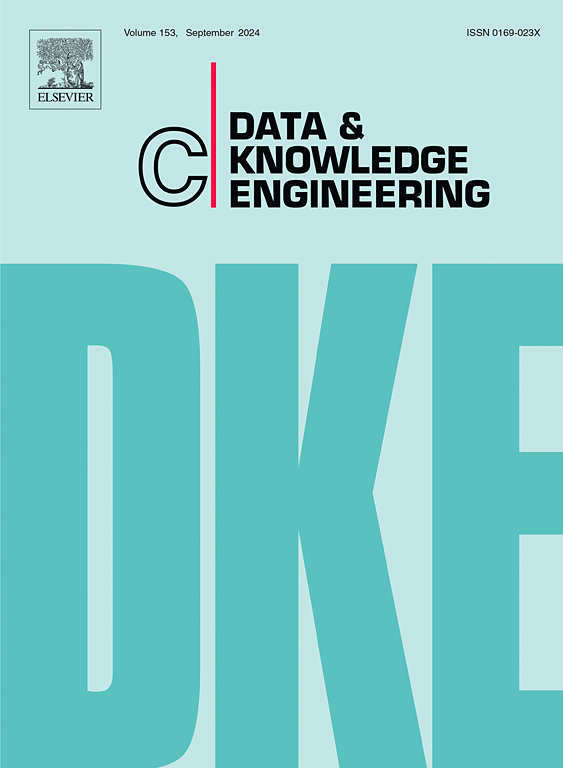Conceptual design of multidimensional cubes with LLMs: An investigation
IF 2.7
3区 计算机科学
Q3 COMPUTER SCIENCE, ARTIFICIAL INTELLIGENCE
引用次数: 0
Abstract
Large Language Models (LLMs) can simulate human linguistic capabilities, thus producing a disruptive impact across several domains, including software engineering. In this paper we focus on a specific scenario of software engineering, that of conceptual design of multidimensional data cubes. The goal is to evaluate the performance of LLMs (precisely, of ChatGPT-4o) in multidimensional conceptual design using the Dimensional Fact Model as a reference. To this end, we formulate nine research questions to (i) understand the competences of ChatGPT in multidimensional conceptual design, following either a supply- or a demand-driven approach, and (ii) investigate to what extent they can be improved via prompt engineering. After describing the research process in terms of base criteria, technological setting, input/output format, prompt templates, test cases, and metrics for evaluating the results, we discuss the output of the experiment. Our main conclusions are that (i) when prompts are enhanced with detailed procedural instructions and examples, the results produced significantly improve in all cases; and (ii) overall, ChatGPT is better at demand-driven design than at supply-driven design.
基于llm的多维数据集概念设计研究
大型语言模型(llm)可以模拟人类的语言能力,从而在包括软件工程在内的多个领域产生破坏性影响。在本文中,我们关注软件工程的一个特定场景,即多维数据集的概念设计。目标是使用维度事实模型作为参考,评估llm(准确地说是chatgpt - 40)在多维概念设计中的性能。为此,我们制定了九个研究问题,以(i)了解ChatGPT在多维概念设计中的能力,遵循供应驱动或需求驱动的方法,以及(ii)调查通过快速工程可以在多大程度上改进它们。在从基本标准、技术设置、输入/输出格式、提示模板、测试用例和评估结果的度量等方面描述了研究过程之后,我们讨论了实验的输出。我们的主要结论是:(i)当用详细的程序说明和示例加强提示时,在所有情况下产生的结果都显着改善;(ii)总体而言,ChatGPT更擅长需求驱动的设计,而不是供应驱动的设计。
本文章由计算机程序翻译,如有差异,请以英文原文为准。
求助全文
约1分钟内获得全文
求助全文
来源期刊

Data & Knowledge Engineering
工程技术-计算机:人工智能
CiteScore
5.00
自引率
0.00%
发文量
66
审稿时长
6 months
期刊介绍:
Data & Knowledge Engineering (DKE) stimulates the exchange of ideas and interaction between these two related fields of interest. DKE reaches a world-wide audience of researchers, designers, managers and users. The major aim of the journal is to identify, investigate and analyze the underlying principles in the design and effective use of these systems.
 求助内容:
求助内容: 应助结果提醒方式:
应助结果提醒方式:


